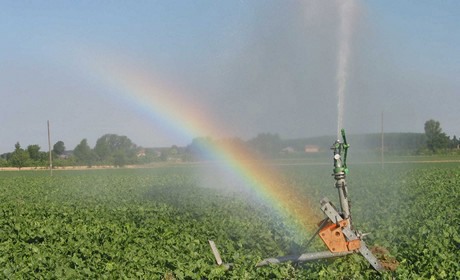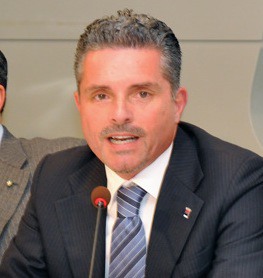The rain diminished by 65% in September and, during the first decade of October, temperatures exceeded 30°C, i.e. 10-12°C higher than the average temperatures. Cooperatives from Romagna are worried, also considering the upcoming sowing of winter vegetables.

"The lack of humidity in the soil impedes a correct growth of plants that need a quantity of chill hours that is increasingly difficult to achieve, which in turn affects quality," report Stefano Patrizi and Federico Morgagni from Legacoop Romagna. As for fruit, the effects of the abnormal temperatures are already serious all over Italy.
"Apples and kiwifruits seem to be particularly hit with lower quantities, delays in the final ripening phase of some fruits, lack of color and lower quality with scalding damage and smaller sizes."
The seed segment is very worried for almost all varieties: transplants were carried out a few weeks ago and plantlets are extremely sensitive to the lack of water. The risk is the loss of multiple hectares and of production in the next 2024 campaign. Considering the absence of precipitations, some companies have already started irrigation while others could start soon unless the weather changes. There are also soil preparation problems, especially in alluvial areas, as well as issues in the mechanical control of weeds.
Legacoop Romagna is paying close attention to this problem and has recently organized a meeting with economists, meteorologists and agronomists. Current studies are also focusing on the creation of drought-resistant varieties and are implementing technological measures to improve the water situation of the soil, measure plant parameters, use agricultural methods that waste fewer resources and control sun exposure. These new perspectives are however expensive and need to be experimented in the medium-long term.
 "We are ready to implement innovative solutions to guarantee a sustainable future, but we need the support of institutions, which must put their positions of denial aside and re-establish a strong alliance with science and the universities," concludes the President of Legacoop Romagna, Paolo Lucchi (in the photo).
"We are ready to implement innovative solutions to guarantee a sustainable future, but we need the support of institutions, which must put their positions of denial aside and re-establish a strong alliance with science and the universities," concludes the President of Legacoop Romagna, Paolo Lucchi (in the photo).










